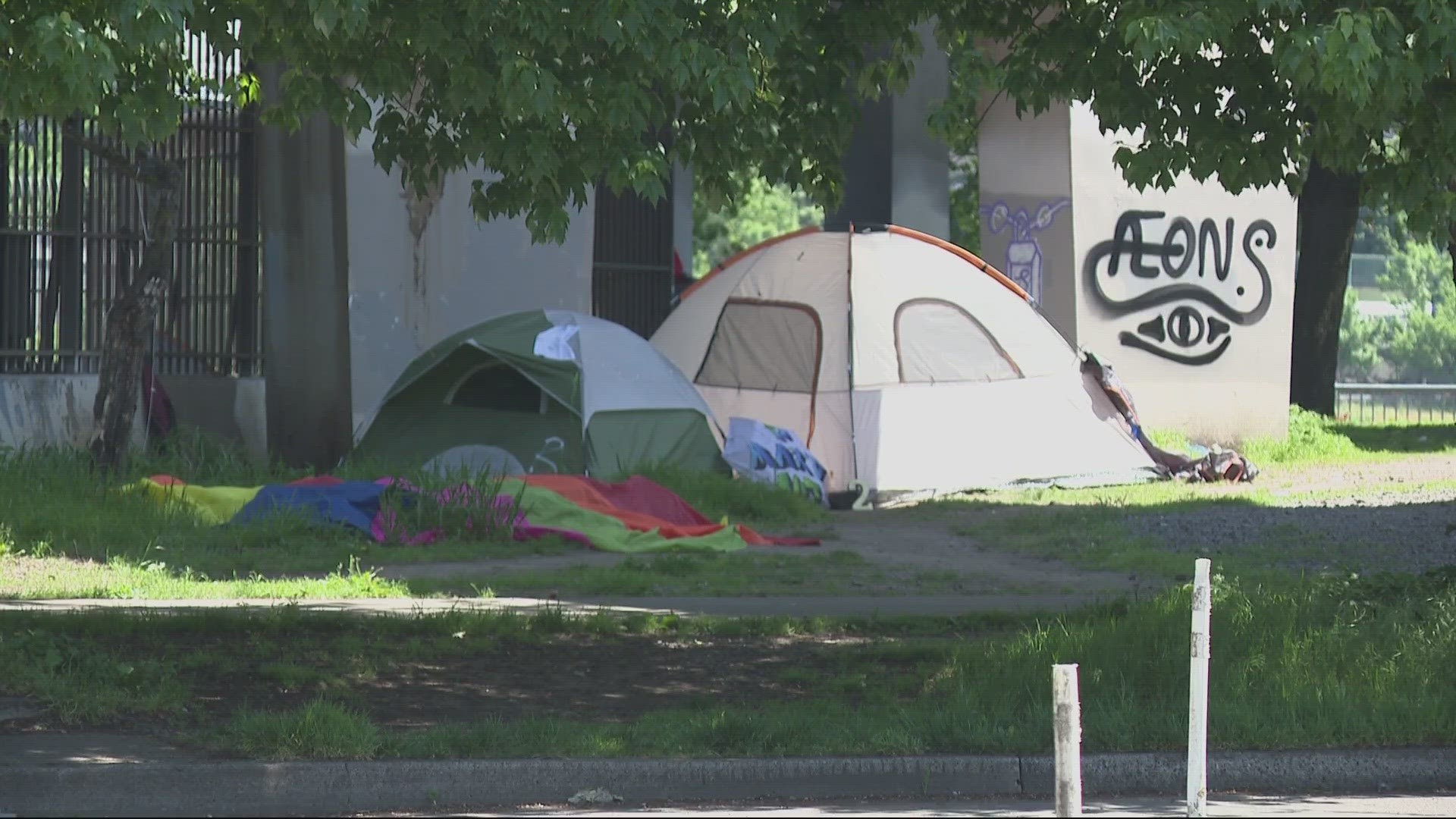PORTLAND, Ore. — Portland Mayor Ted Wheeler plans to propose a daytime ban on camping in the city, in addition to full-time camping bans around schools and other sites, the mayor's office has confirmed.
The proposal marks a step toward the mayor's stated goal of enacting a total ban on unsanctioned homeless camps, paired with the construction of six large-scale camp sites. None of those sites have opened yet, though city officials have detailed some plans for one of them.
Under Wheeler's proposal, camping on city property would be banned from 8 a.m. to 8 p.m. every day, Willamette Week reported Tuesday. Camping would also be prohibited at all hours near schools, day care centers and other shelter sites.
A ban like the one under consideration by Wheeler's office appears likely to comply with Oregon law and court precedent — something that would be uncertain under a total ban.
A bill passed by the legislature in June of 2021 aligned Oregon law with an influential court ruling, Martin v. City of Boise, in which the 9th Circuit Court of Appeals found that a municipality's "time, place and manner" restrictions for sleeping on public property must be reasonable. A subsequent decision involving the southern Oregon city of Grants Pass drove the point home.
A full ban on sleeping outdoors, for example, would be considered unreasonable if the city in question did not have adequate shelter space available. However, bans on tent camping during only certain hours — even full-time bans in certain areas — will likely comply with the law.
Nick has been homeless in Portland ever since he lost his job as a kitchen manager during the pandemic. He now camps on city property.
“Right now, I’m living in a tent on a hill with a bunch of other people,” he said.
Nick doesn't see the ban working, saying there aren't enough places for everyone to go.
"I guess, what would be the alternate place to go besides (congregate) shelter, which doesn't work for some people," he said.
Melissa, who also lives on the streets, said she doubts the ban could be enforced.
"I think its funny, kind of ... I mean, it's not going to work," she said. "Nobody is gonna go pack up their tents at 8 a.m. every day — it's not gonna happen."
Portland ostensibly has bans in place already for certain areas, like routes to school and certain high-crash corridors. But on many of those routes, there are still plenty of tents set up on any given day.
"It's completely unrealistic. On paper it's great, I love it," said Todd Littlefield.
Littlefield is vice chair of the Lents Neighborhood Association. His area is one with a significant homeless population.
"We've been intimidated, harassed, threatened, assaulted, I've got bullets in my shop, I've had rifles pointed at my head, property stolen," Littlefield said. "Twenty-four hours a day, it's chaos ... you've got people yelling, screaming — it's insane."
Even though he desperately wants a change, Littlefield doesn't think a daytime ban will work, given the sheer number of people on the streets.
"We need to have pragmatic solutions — not dreams, not delusions, not fantasies," he said.
In this, people like Melissa are in agreement with Littlefield.
"I don't know what they could be doing to help, but there's definitely other ways other than just telling you where you can and can't go, that's for sure," she said.
More details on the proposed camping ban are expected to come out next week.

